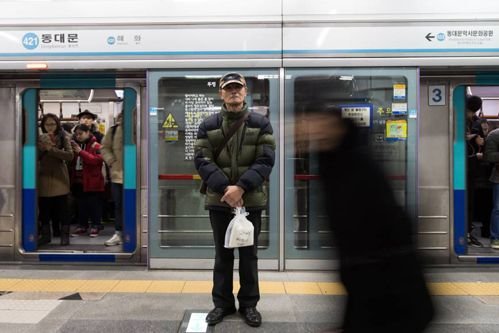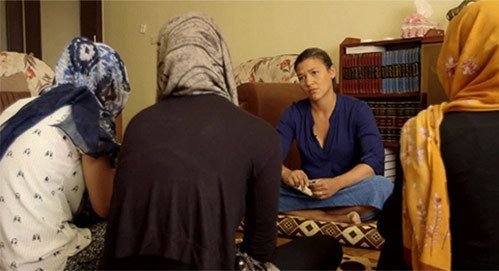Elderly Koreans hunch over delivering goods to survive day by day
Mr. Cho Yong-moon, 75 years old, on his way to make a quick delivery, stood at a subway station in Seoul, South Korea.
Taking advantage of the free subway card, Mr. Cho Yong-moon, 75 years old, spends 9 hours a day and 5 days a week making express deliveries to clothing and jewelry stores in Seoul, South Korea, Bloomberg
With a meager pension and constantly increasing living costs, more and more elderly people like Mr. Cho are joining the `army` of fast delivery workers spreading to every corner of Seoul.
`This job is not easy, especially when I carry heavy loads and walk long distances between subways,` said Mr. Cho, who said he earns about $430 per month plus a pension of nearly $500.
`The number of priority seats for the elderly on the subway is also limited, so I often have to stand for hours,` Mr. Cho confided.
Mr. Cho’s difficult living situation shows the challenges that South Korea is facing in the context of declining economic growth and an aging population.
`These challenges have become greater for Northeast Asia due to the speed and scale of population change. The advantage of a young population once contributed to the region’s steady economic growth, but now
Mr. Park commented that the poor life of the elderly poses a great risk of economic and social instability to the Northeast Asia region.
Working in old age

An old Korean man sits on a stone step in a park in Seoul, South Korea.
The culture of `living long and becoming old` in Korea forces companies to pay salaries based on seniority, meaning the older and longer an employee has been with the company, the higher the salary.
In addition, the multi-generational family model, in which children take care of their parents in old age, and grandparents help look after their grandchildren so their parents can work, is no longer popular in Korea, causing millions of people to
The proportion of elderly people living in poverty in South Korea is the highest among countries in the Organization for Economic Cooperation and Development.
`Companies need to change the culture of increasing employee benefits based on seniority because this is the reason why they are reluctant to keep older workers,` admitted professor Shin Kwan-ho of Korea University in Seoul.
However, in reality, it is not easy for the elderly to find jobs.
Golden Job, a job search center in Seoul city, opens skills training courses for elderly workers, focusing on jobs such as courier, parking attendant, janitor or librarian.
Mr. H.M.
Mr. Cho said he used to earn about two million won ($1,600 USD) each month.
According to statistics, about 44% of Koreans aged 55 to 79 are living on pension benefits from government agencies or private enterprises.
Results of a survey on the income of the middle class in Korea showed that the majority of respondents said that pensions would not be enough to cover half of their living expenses.
Mr. Cho Won-dae, 84 years old, has worked as a express delivery person for the past 10 years.
`Still making money is good, no matter how little. One time my son’s friend saw me sitting and drinking at the subway station, but I didn’t feel embarrassed at all. You should be proud.`














Post Comment